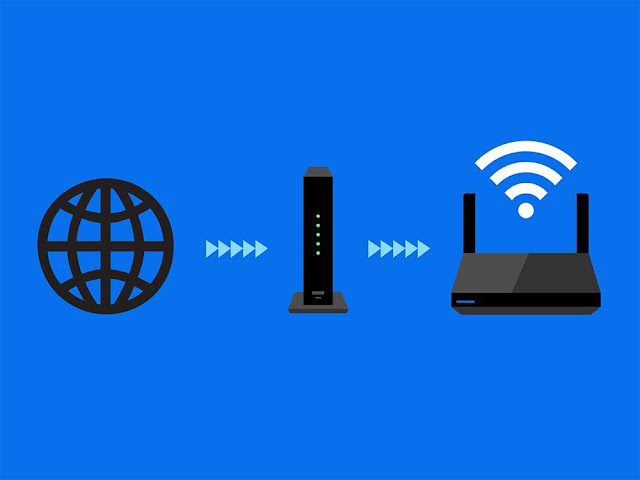Step into the vibrant world of entrepreneurship in Nigeria, where dreams take flight and possibilities abound. Discover a range of businesses you can start and run with N130,000 or less in Lagos, Nigeria. From retail to services, uncover strategic tips, and operational insight. Explore the captivating journey of starting and running businesses on your own and gain inspiration from real-life examples, learn valuable lessons, and unleash your entrepreneurial spirit in the bustling city of Lagos.
In the first part series, we discuss Fashion Accessories Retail.
Fashion Accessories Retail: Building a Successful Business in the Fashion Industry.
Introduction:
The fashion accessories retail industry offers tremendous opportunities for aspiring entrepreneurs who have a passion for style and trends. This guide will provide a comprehensive overview of how to start a fashion accessories retail business, from sourcing affordable yet trendy products to establishing a strong presence through online and offline channels. Real-life examples will be used to illustrate key steps and costs involved in each stage of the process.
1. Source Affordable Yet Trendy Products:
To create a successful fashion accessories retail business, it's crucial to source products that are both affordable and on-trend. Identify local suppliers or explore online platforms that offer a wide range of accessories, including jewelry, handbags, scarves, sunglasses, and hats. Conduct thorough research and negotiate favorable pricing to ensure a competitive edge in the market.
Example Scenario:
Amelia, an aspiring entrepreneur, decides to start a fashion accessories retail business. She identifies a local supplier who offers a variety of trendy accessories at affordable prices. Amelia establishes a partnership with the supplier, enabling her to access the latest fashion accessories and offer them to her customers at attractive price points.
2. Create an Inventory:
Building a diverse and appealing inventory is essential to attract customers and meet their fashion needs. Consider the latest fashion trends, target customer preferences, and a variety of price points when selecting products for your inventory. Aim to offer a well-curated collection that appeals to different style preferences and budgets.
Example Scenario:
David, an entrepreneur with a keen eye for fashion, invests N80,000 to create an initial inventory for his fashion accessories retail business. He carefully selects a range of products, including statement necklaces, trendy handbags, and stylish sunglasses, catering to both casual and formal fashion styles. David ensures that his inventory represents a balance between current trends and timeless pieces.
3. Set up an Online Store:
In today's digital age, establishing an online presence is crucial for reaching a wider audience and generating sales. Create an online store that showcases your fashion accessories and provides a seamless shopping experience for customers. Invest in a user-friendly website, professional product photography, and secure payment options to build trust and credibility.
Example Scenario:
Tara, an entrepreneur with a tech-savvy approach, invests N50,000 to set up an online store for her fashion accessories business. She hires a web designer to create an attractive and mobile-responsive website that reflects her brand identity. Tara optimizes the website for search engines, ensuring her products appear in relevant online searches. She also integrates secure payment gateways and implements effective inventory management systems to streamline her online operations.
4. Rent a Small Kiosk in a Busy Shopping Area:
While online sales are vital, having a physical presence can help attract customers and establish a direct connection with them. Consider renting a small kiosk or stall in a busy shopping area or local market where there is high foot traffic. Choose a location that aligns with your target audience and provides visibility for your fashion accessories.
Example Scenario:
Michael, an entrepreneur who values face-to-face interactions, decides to rent a small kiosk in a popular shopping mall. He invests N100,000 as a deposit and commits to a monthly rental fee. The kiosk is strategically located near other fashion-related stores, attracting customers who are already interested in fashion accessories. Michael designs an eye-catching display for his products and ensures the kiosk is well-stocked with a variety of accessories to entice shoppers.
To illustrate, let's take the business idea of "Fashion Accessories Retail":
How to Get Started: Research local suppliers or online platforms, source affordable fashion accessories, create an inventory and establish an online store or rent a small kiosk.
Publicity: Utilize social media platforms to showcase products, collaborate with fashion influencers for promotions, participate in local pop-up markets, and distribute flyers in targeted areas.
Operational Tips: Stay updated with fashion trends, offer competitive pricing, provide excellent customer service, and focus on building customer loyalty through personalized shopping experiences.
Income Potential: With effective marketing, product selection, and customer engagement, you can generate a steady income. The actual earnings will depend on factors such as pricing, sales volume, and operational costs.
Acquiring Investment Capital: Consider self-funding, reaching out to friends and family, exploring microfinance institutions, crowdfunding campaigns, or government grants.
Getting More Information: Join local business networks, enroll in entrepreneurship courses, visit Small Business Development Centers in Lagos, and utilize online resources such as websites, blogs, and podcasts that provide guidance on starting a fashion accessories business.
Conclusion:
Starting a fashion accessories retail business requires a combination of creativity, market research, and strategic decision-making. By sourcing affordable yet trendy products, creating an appealing inventory, establishing an online store, and renting a small kiosk in a busy shopping area, you can position your business for success in the competitive fashion industry. The real-life examples provided throughout this expository guide illustrate the steps and costs involved in each stage of the process, helping aspiring entrepreneurs navigate the challenges and opportunities of the fashion accessories retail business. Remember, understanding your target audience, staying updated with fashion trends, and delivering excellent customer service are key factors in building a thriving and profitable fashion accessories retail business.
FAQ:
Q: What types of fashion accessories can I sell in my retail business in Lagos, Nigeria?
A: You can sell a wide range of fashion accessories such as jewelry, handbags, scarves, sunglasses, hats, belts, and hair accessories.
Q: How can I find reliable suppliers for my fashion accessories?
A: You can find reliable suppliers by attending trade shows, reaching out to local manufacturers and wholesalers, exploring online marketplaces, or networking with industry professionals.
Q: How can I determine the pricing for my fashion accessories?
A: Consider factors such as product quality, competition, target market, and desired profit margins when setting your pricing. Conduct market research to understand the price range for similar products in the market.
Q: How can I attract customers to my fashion accessories retail store?
A: Utilize marketing strategies such as social media promotions, word-of-mouth advertising, collaborations with fashion influencers or bloggers, hosting events or workshops, and creating eye-catching window displays.
Q: Is it necessary to have an online presence for my fashion accessories retail business?
A: Having an online presence is highly recommended in today's digital age. Create a website or online store where customers can browse and purchase your products. Utilize social media platforms to engage with your target audience and promote your offerings.
Q: How can I differentiate my fashion accessories retail business from competitors?
A: Offer unique or exclusive products, provide exceptional customer service, create a visually appealing store layout, stay updated with the latest fashion trends, and actively engage with your customers to build brand loyalty.
Q: Are there any legal requirements or permits I need to consider when starting a retail business in Lagos?
A: Yes, you will need to register your business with the appropriate government agencies, obtain necessary permits, and comply with tax regulations. Consult with local authorities or business consultants to ensure you meet all legal requirements.
Q: How can I manage my inventory effectively?
A: Implement inventory management systems to track stock levels, conduct regular audits, analyze sales data to forecast demand, and establish relationships with suppliers to ensure timely restocking of popular items.
Q: How much can I expect to earn from a fashion accessories retail business in Lagos?
A: Your earnings will depend on factors such as sales volume, pricing, operational costs, and market demand. With effective marketing strategies and efficient operations, you can generate a profitable income. Conduct thorough financial planning to estimate your potential earnings.
By
Staff Writer.
This article is for educational purposes and does not constitute legal, financial, or tax advice. For specific advice applicable to your business, please contact a professional.



/product/25/7427401/1.jpg?7225)






